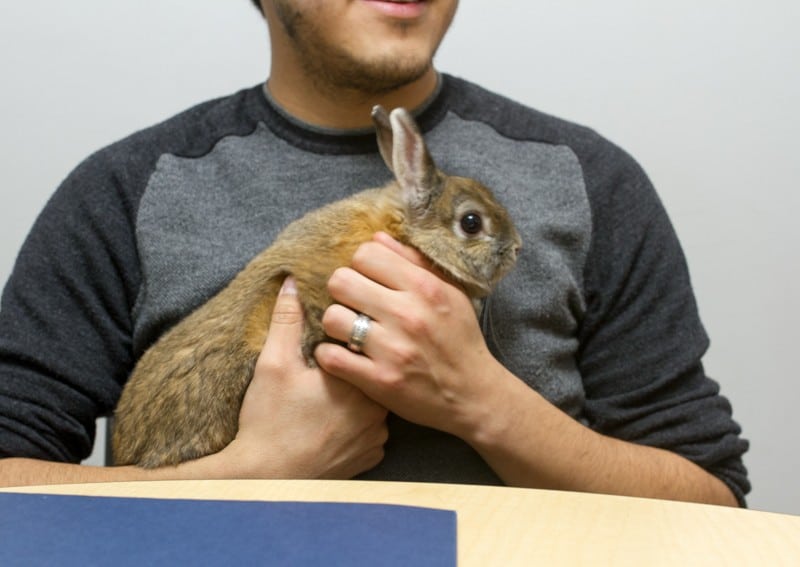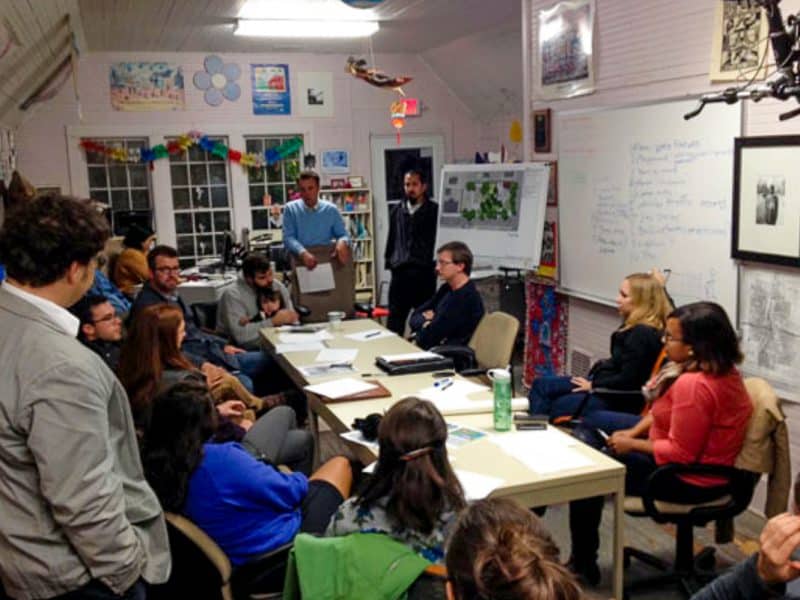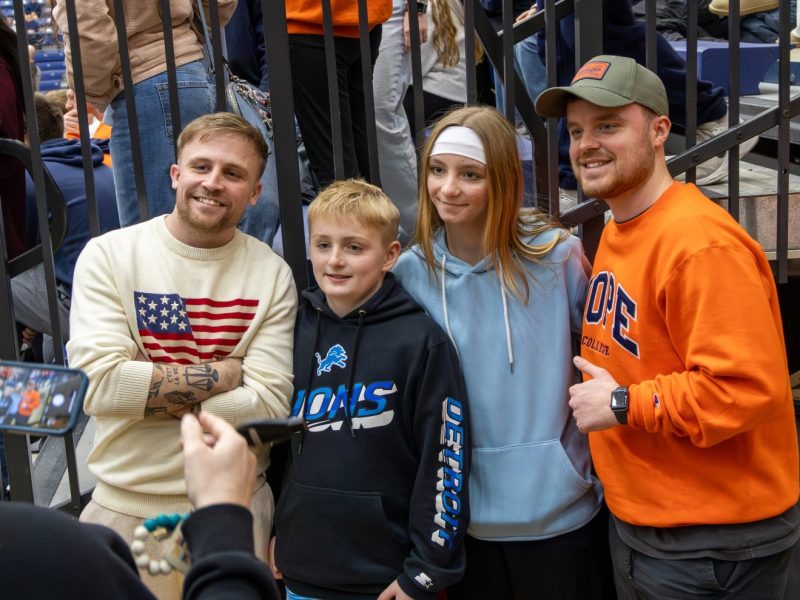Tell us your story: WKTV seeks local oral histories
VOICES: WKTV’s community history project records hardships and successes, joys and sorrows, triumphs and tragedies, all of which reveal what has shaped locals and their families into the kind of people they are today.
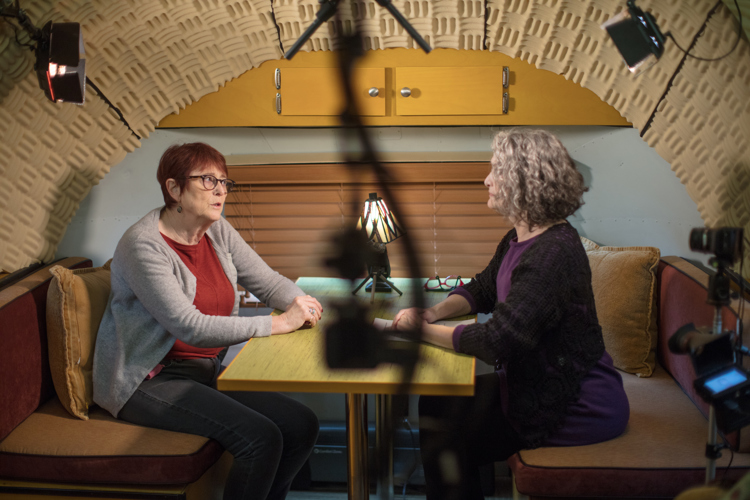
The interior of a renovated Airstream Overlander Trailer resembles a cozy dinette, but there’s no daily special on the menu.
With its distinctive polished aluminum exterior, public access station WKTV in Wyoming has converted the 59-year-old trailer into a high-tech mobile studio for a project dubbed VOICES: WKTV’s community history project.
VOICES record the stories of those who reside in Wyoming, Kentwood, and throughout West Michigan.
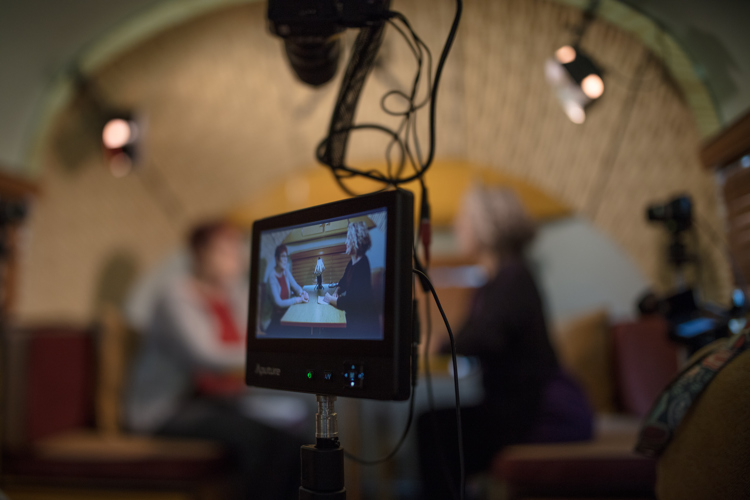
And the interviews are proving to be anything but cookie-cutter oral histories, says Girbe Eefsging of WKTV, who is coordinating the recordings. These are visceral accounts of hardships and successes, joys and sorrows, triumphs and tragedies, all of which reveal what has shaped locals and their families into the kind of people they are today.
Participants are asked to bring a friend, acquaintance, or family member to interview them for a recording session that takes between 40 to 60 minutes. If they don’t have someone to interview them, WKTV can provide an interviewer.
The wide-ranging oral histories will eventually be archived with the Library of Congress and at some point in time, a program will be edited for broadcast on WKTV.
“The idea is we all have a story: a beginning, a middle, and at some point, an end,” says Eefsging. “We go into the community and capture the stories of the members of the community by attending local events. We park over in the libraries, the (public) museum, and we’ve created a website so people can see where we are from week to week and make a reservation to reserve a session.
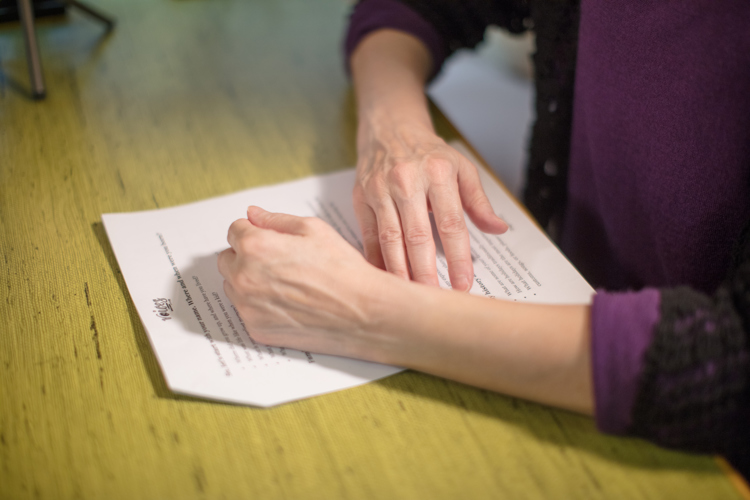
“Some of those are very personal and some incorporate a whole community of people,” he adds.
Many fans of NPR might draw the parallel to StoryCorps, a project founded in 2003 by radio producer David Isay who wanted to preserve the stories of Americans from all backgrounds and beliefs. StoryCorps interviews also take place between two people who care about each other, but they are only audio recordings.
WKTV’s VOICES includes both audio and video. “I know these recordings we’re doing will become legacies to the families who are doing them,” says Eefsging. “I think it might be compelling to have a highlight show so that’s another thing we’re looking at.”
2017 is VOICES’ inaugural year. It was first introduced to the public during ArtPrize Nine, and will continue indefinitely to make regular appearances at various locations throughout Kent County, says Eefsging.
Salient examples so far include Vietnamese refugees living in Wyoming who recall fleeing Vietnam by boat and ship in the 1970s to escape the grip of communism; 87-year-old twin sisters who gave a glimpse into their lives as identicals; and a World War II veteran who witnessed the horrific use of flamethrowers to clear out Japanese soldiers hiding in caves in Okinawa.
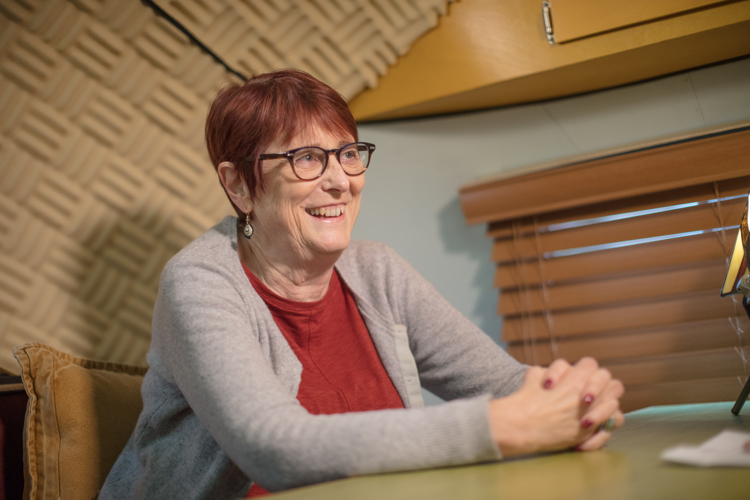
Eastown resident Pamela Benjamin’s interview with WKTV’s Victoria Mullen recalled her headwinds experience of becoming a U.S. citizen seven years ago. Benjamin emigrated 15 years ago from Sydney, Australia with her husband, Craig, so he could take a job teaching history at Grand Valley State University’s Frederik Meijer Honors College.
Benjamin says she initially felt like a nonperson after arriving in the U.S. While her husband had an H-1B visa, she was relegated to a spousal visa that prevented her access to services U.S. citizens take for granted.
“I couldn’t get a book out of the library,” says an exasperated Benjamin. “I was invisible. I was like a nonperson. I suspect that happens to a lot more people than we realize.” Earning her citizenship was somewhat of an uphill climb and at times a dumbfounding experience, adds Benjamin.
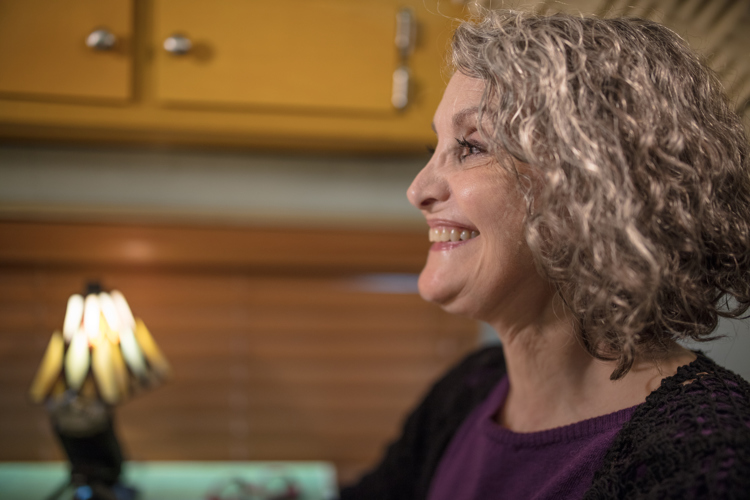
Grasping the Midwest cultural milieu provided further challenges for Benjamin. “The first time I went into a supermarket I nearly went mad,” she says. “Nothing looked familiar and during those days, 15 years ago, there were no butcher shops. I saw cuts of meat I didn’t even recognize…
“Butter is a totally different color. I think it’s a lot yellower here. One of the smartest things I did during the first six weeks here was I got a puppy. It was a lifesaver.”
“I felt I should have written some sort of instruction booklet for new people moving to America,” she says.
Mullen notes that Benjamin has in a sense accomplished that desire by sharing her immigration exploits via VOICES.
Eefsging appreciates the residents who take the time to open up about their lives. The challenge, if there is one, is convincing people their stories are worth preserving.
“A lot of people say they don’t have a story,” says Eefsging. “They say, ‘My life is simple.’ But we all have a story and having an opportunity to tell a story is an effective way of connecting and teaching the next generation the struggles you went through and the lessons you’ve learned.”
If you’re interested in learning more more about VOICES. visit www.Wktvvoices.org. Registration to record your life’s story is free and can be made via the website.
Photography by Adam Bird of Bird + Bird Studio.

